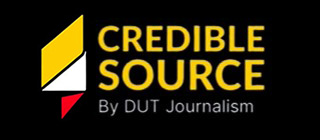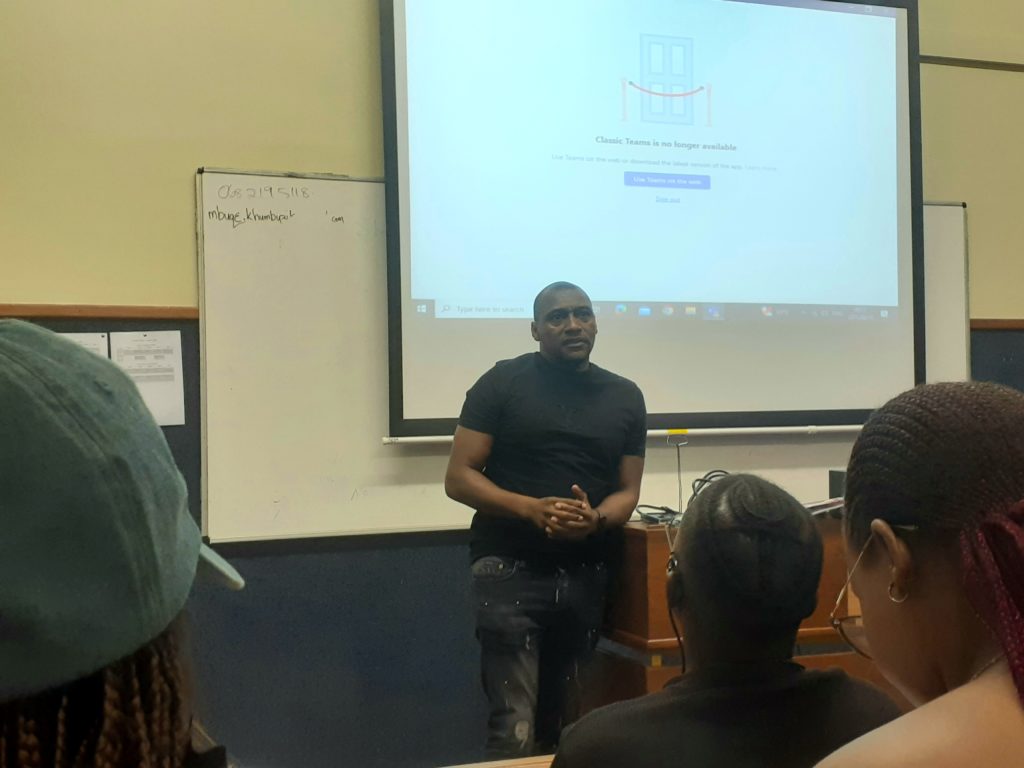By Makhosazana Radebe
Parliamentary communication adviser, Reggie Ngcobo, bluntly warned Durban University of Technology (DUT) journalism students that the profession they want to get into has a credibility problems due to a few bad apples.
Ngcobo is an alumnus of DUT Journalism and is now Executive Director in the Office of the Speaker of Parliament. returned to his former campus to deliver a blunt assessment of modern journalism.
His core message to students is that they must be journalists with integrity.
He also stressed the importance of a strong contact list. “If you don’t have contacts, don’t call yourself a journalist.”
He says those who can share information that can change the future and help us write better stories are ordinary citizens and not just people with big job titles. “A woman who sits outside a building from six to six sees everything that happens. If you ask her what happened, you’ll have a better story than from a police officer who arrived afterwards.”
In the age of social media, news organisations have found themselves with struggles of competing with content creators who may not be as thorough as journalists, but are sometimes confused with journalists. This confusion contributes to the erosion of trust between the consuming public and South Africans.
56-year-old, Thembeka Geza, says that she isan avid 56-year news consumer. “I don’t trust news articles as much anymore, especially news on the internet or social media.”
This sentiment is echoed by Steelpark community activist Siphiwe Tsotetsi. He says that he feels journalists are not as thorough as they once were. “We see important community issues being misrepresented or completely ignored because journalists no longer have the right people on the ground. They report on us, not with us. Trust is built by being present, not just when there’s a crisis in our communities.”
To the students, Ngcobo says while sources are important, journalists must never be their mouthpiece. “No platform can save a story that lacks fundamental truth.”
Parliamentary communication adviser, Reggie Ngcobo, bluntly warned Durban University of Technology (DUT) journalism students that the profession they want to get into has a credibility problems due to a few bad apples.
Ngcobo is an alumnus of DUT Journalism and is now Executive Director in the Office of the Speaker of Parliament. returned to his former campus to deliver a blunt assessment of modern journalism.
His core message to students is that they must be journalists with integrity.
He also stressed the importance of a strong contact list. “If you don’t have contacts, don’t call yourself a journalist.”
He says those who can share information that can change the future and help us write better stories are ordinary citizens and not just people with big job titles. “A woman who sits outside a building from six to six sees everything that happens. If you ask her what happened, you’ll have a better story than from a police officer who arrived afterwards.”
In the age of social media, news organisations have found themselves with struggles of competing with content creators who may not be as thorough as journalists, but are sometimes confused with journalists. This confusion contributes to the erosion of trust between the consuming public and South Africans.
56-year-old, Thembeka Geza, says that she isan avid 56-year news consumer. “I don’t trust news articles as much anymore, especially news on the internet or social media.”
This sentiment is echoed by Steelpark community activist Siphiwe Tsotetsi. He says that he feels journalists are not as thorough as they once were. “We see important community issues being misrepresented or completely ignored because journalists no longer have the right people on the ground. They report on us, not with us. Trust is built by being present, not just when there’s a crisis in our communities.”
To the students, Ngcobo says while sources are important, journalists must never be their mouthpiece. “No platform can save a story that lacks fundamental truth.”


